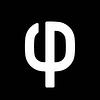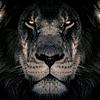Take a photo of a barcode or cover
The Forever War - 5
Middle Books - 3.5
Forever Peace - 4.5
Middle Books - 3.5
Forever Peace - 4.5
Picked this up because I heard there was a movie due.
The first of the three books - Forever War - is the meat of the story and is by far the best of the three, putting the issues of fighting a relativistic war front and centre, and the effect this has on the soldiers involved. Obviously it has dated a little in places (or alternatively has become a 'classic') but it still reads well and hasn't aged badly at all being comparatively well written (not like re-reading Asimov for example).
The second book, starts well, looking to shape up into a Vinge type epic. However, I really feel it was let down with what seemed to be a tacked on ending which was a different book from the one promised in the first half, and rapidly descended into the fantastical to wrap up with a clichéd ending.
The final book doesn't follow from the others, but is a companion story which reads much more easily as a modern tale of nano-tech and brain interfacing. An enjoyable story in its own right, only weakly linked to Forever War.
The first of the three books - Forever War - is the meat of the story and is by far the best of the three, putting the issues of fighting a relativistic war front and centre, and the effect this has on the soldiers involved. Obviously it has dated a little in places (or alternatively has become a 'classic') but it still reads well and hasn't aged badly at all being comparatively well written (not like re-reading Asimov for example).
The second book, starts well, looking to shape up into a Vinge type epic. However, I really feel it was let down with what seemed to be a tacked on ending which was a different book from the one promised in the first half, and rapidly descended into the fantastical to wrap up with a clichéd ending.
The final book doesn't follow from the others, but is a companion story which reads much more easily as a modern tale of nano-tech and brain interfacing. An enjoyable story in its own right, only weakly linked to Forever War.
As a kid I used to spend a lot of time hanging out in the SciFi section of bookshops, browsing, reading, and occasionally even buying books. The Forever War was one I picked up in a shop and read the first 20 or so pages of, then put it back. It didn't grab me back then. Many (maybe 40) years later I came across the whole three books (I didn't even know there were three) in one volume and figured, well it's a classic and even though I gave up on it, aged maybe 8 years old, maybe 58 year old me would grok it.
And look it's not bad, but it doesn't stand up these days. When it was written, back in the 1960/70s, sexual politics was barely a thing. Everyone, even those of a pretty hard left-wing persuasion, was, by today's standards, pretty conservative. There were no gay rights back then and it really shows. It's a huge plot point in the book that the UN forces everyone to be gay in order to control population growth. It's so weirdly specific and ridiculous with hindsight, and alas not in an ironic or comical way. It seems that, back then, people didn't see homosexuality as something someone is, but something someone chooses. The author goes to great pains to reassure his readers of his hero's macho hetro ways, and the angst he suffers as he discovers he's one of the few straight people left in the galaxy. It's actually laugh out loud in some points.
The first book, which kicks off in the far future of 1997, is pretty good fun (above mentioned sexual hangups aside), and works well as an analog of the plight of soldiers returning from Vietnam to discover how much society has changed, how much they don't like it, and thus they return to the battlefield. The Forever War uses relativistic time dilation as a plot device to really drive this point home. This is the real basis for the book's reputation as a classic of sci-fi.
The second book is a direct sequel to the first and, while kind of fun, is mostly silly. Still that said it clearly influenced a lot of other writers, Adrien Tchaikovsky and John Scalzi come to mind specifically. But it's not a patch on the first book alas. Tho it does end, um, interestingly.
The final book was clearly written maybe 20 years later and tells the story of how humans became 'Man' - the hive mind that humanity becomes while our hero is away fighting his wars. It's okay but drags a bit, and, much like the first book and the gays, this one has some curious racial politics that feel very out of place now.
If I was scoring each book individually I'd give FW 3.5 stars, FF 3 stars and FP 2.5 stars. Still fans of science fiction should be conversant with at least the first book as it was massively influential and has some interesting ideas.
And look it's not bad, but it doesn't stand up these days. When it was written, back in the 1960/70s, sexual politics was barely a thing. Everyone, even those of a pretty hard left-wing persuasion, was, by today's standards, pretty conservative. There were no gay rights back then and it really shows. It's a huge plot point in the book that the UN forces everyone to be gay in order to control population growth. It's so weirdly specific and ridiculous with hindsight, and alas not in an ironic or comical way. It seems that, back then, people didn't see homosexuality as something someone is, but something someone chooses. The author goes to great pains to reassure his readers of his hero's macho hetro ways, and the angst he suffers as he discovers he's one of the few straight people left in the galaxy. It's actually laugh out loud in some points.
The first book, which kicks off in the far future of 1997, is pretty good fun (above mentioned sexual hangups aside), and works well as an analog of the plight of soldiers returning from Vietnam to discover how much society has changed, how much they don't like it, and thus they return to the battlefield. The Forever War uses relativistic time dilation as a plot device to really drive this point home. This is the real basis for the book's reputation as a classic of sci-fi.
The second book is a direct sequel to the first and, while kind of fun, is mostly silly. Still that said it clearly influenced a lot of other writers, Adrien Tchaikovsky and John Scalzi come to mind specifically. But it's not a patch on the first book alas. Tho it does end, um, interestingly.
The final book was clearly written maybe 20 years later and tells the story of how humans became 'Man' - the hive mind that humanity becomes while our hero is away fighting his wars. It's okay but drags a bit, and, much like the first book and the gays, this one has some curious racial politics that feel very out of place now.
If I was scoring each book individually I'd give FW 3.5 stars, FF 3 stars and FP 2.5 stars. Still fans of science fiction should be conversant with at least the first book as it was massively influential and has some interesting ideas.
This was an omnibus of three books: The Forever War, Forever Free and Forever Peace. The Forever War )soon to be a Ridley Scott movie - hoo yaa!) was excellent and concise. Forever Free was a non-conventional sequel, still quite enjoyable. Forever Peace was very good - part Matrix (the use of 'jacks' no, not the scatological types) and part anti-war, like most of his stories.
All in all - very good read and nice price - three books for the price of one!
All in all - very good read and nice price - three books for the price of one!
I'd already read The Forever War, but was disappointed by its sequel. It seemed to be working its way towards something, then just stop. Forever Peace does not follow the same characters, or indeed timeline, but has a very interesting premise that drives the "what happens if the whole world stops war" story.
adventurous
dark
slow-paced
Plot or Character Driven:
A mix
Strong character development:
Yes
Loveable characters:
Complicated
Diverse cast of characters:
Yes
Flaws of characters a main focus:
No
Enjoyed Forever War. Excellent classic sci-fi.
Forever Free kept me reading, but the ending was a slap in the face cop out on plot points built up throughout the book.
Forever Peace was really hard to read. The extensive battle scenes and army jargon dragged the plot down in the first half. There were far too many characters to keep track of. It felt like a cobbled together explanation of the events occuring back on earth during Forever War, and not all plot points made sense. The ending felt glossed over.
What these books all share are an excellent idea, a classic what-if sci-fi scenario that I wanted to explore through the novel. I just wish the excecution of these ideas had been more satisfying.
Forever Free kept me reading, but the ending was a slap in the face cop out on plot points built up throughout the book.
Forever Peace was really hard to read. The extensive battle scenes and army jargon dragged the plot down in the first half. There were far too many characters to keep track of. It felt like a cobbled together explanation of the events occuring back on earth during Forever War, and not all plot points made sense. The ending felt glossed over.
What these books all share are an excellent idea, a classic what-if sci-fi scenario that I wanted to explore through the novel. I just wish the excecution of these ideas had been more satisfying.
Wrote a long review and lost it - crap. Anyway, I was saying that the first book in the trilogy, forever war, was definitely the best of the three. That's not to say that the following two were lacking significantly. it's just that I would give a 5/5 to the forever war and a 4/5 to the entire omnibus. I did thoroughly enjoy all three books but forever war was just so ahead of its time that it shines as a bright example of sci-fi writing. I will definitely have to get me some more haldemann
adventurous
challenging
dark
emotional
hopeful
mysterious
reflective
sad
tense
medium-paced
Plot or Character Driven:
A mix
Strong character development:
Yes
Loveable characters:
Yes
Diverse cast of characters:
Yes
Flaws of characters a main focus:
Yes
Probably the most realistic depiction (minus the far future alien-clone human race that we have evolved to ) of sub-light speed space travel and war I have ever read or can imagine. The last book in the omnibus does wander off the plot a little but, still my current favorite book of all time.
adventurous
dark
reflective
medium-paced
Plot or Character Driven:
A mix
Strong character development:
Complicated
Loveable characters:
No
Diverse cast of characters:
No
Flaws of characters a main focus:
No




